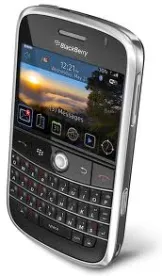After living with the reality of after-hours work emails, texts and cell phone calls for so many years, no one should be surprised that the Fair Labor Standards Act (FLSA) (29 U.S.C. § 201 et seq.) requires employers to pay non-exempt employees for all overtime hours worked – including any overtime spent emailing, texting or on calls from mobile electronic devices. And, it goes without saying that employers are liable for the failure to make these required overtime payments whether the employers have actual or constructive knowledge of the employees’ overtime. For example, let’s say an employer maintains a written policy forbidding employees from working any overtime by emailing, texting and cell phone calls. Nevertheless, the employer receives and accepts an assignment from an employee submitted by email after hours. However, due to the prohibition against after-hours emails, the employee generally does not submit for overtime. In such a situation, the employer cannot avoid liability for the failure to pay the employee overtime because it knew the work was performed. Just because the employee did not request overtime pay does not excuse the obligation to pay. Rather, where an employer accepts the benefit of an after-hours email, the employer is deemed to have constructive knowledge of the overtime and is, therefore, required to pay for it whether or not the time is submitted for payment by the employee.
A somewhat newer and thornier issue was recently addressed by the Seventh Circuit in the case Jeffrey Allen et al. v. City of Chicago (Case No. 16-1029). In Allen, members of the Chicago Police Department’s Bureau of Organized Crime sued the City of Chicago for failure to properly pay overtime under the FLSA for overtime work completed by employees on City-issued BlackBerrys. Specifically, the Allen plaintiffs contended that, despite having an adequate overtime reporting policy, the Chicago Police Department maintained another “unwritten” policy, the practical effect of which was to discourage officers from seeking overtime payment for work performed on a BlackBerry. As a result of the informal policy, the plaintiffs claimed they never even asked for overtime pay for the work they performed. Thus, the issue raised by the Allen plaintiffs was whether, under such circumstances, constructive knowledge of the officers’ overtime should be imputed to the Chicago Police Department and they should have to pay for it.
After considering all the evidence, including the Department’s actual written overtime policies, as well as its unspoken atmosphere and the employer’s ability to check officers’ time entries against work submitted, the Seventh Circuit affirmed the trial court’s decision. The court held that the Chicago Police Department did not have either actual or constructive knowledge of the unreported overtime worked by the plaintiffs. In its decision, the Seventh Circuit focused on the fact that the Police Department’s written overtime policy did not in any way stop officers from submitting for overtime worked by means of BlackBerry. Nor was the supposed unspoken policy of discouraging the submission of overtime for after-hours emails and texts so prevalent that it chilled the officers’ ability to put-in for overtime pursuant to the written policy of the Department. The Court of Appeals noted that the written overtime policy did not require officers to specify the means by which they worked their overtime and the Police Department had no effective way of checking the officers’ time sheets against their actual work. Therefore, the Police Department would have no way to know of – or therefore discourage – the submission of overtime worked by means of a mobile electronic device.
The lesson to be learned from the Allen case appears to be that an employer’s written overtime policy should be sufficiently clear and unequivocal such that it can overcome any allegations or arguments that an unwritten policy to the contrary exists. In particular, the policy should address work via remote access, be it laptop or other mobile devices, and specifically require employees to immediately report it to the employer. Further support (which will also provide an added boost to any defense based on the policy) would be to ensure purposeful enforcement of the policy (likely evidence by written warnings to those who violate it). However, employers are not required to compensate employees for very small amounts of overtime worked – generally less than 10 minutes. Nevertheless, a long history of emails and texts during “off work” hours could be a problem.




 />i
/>i

